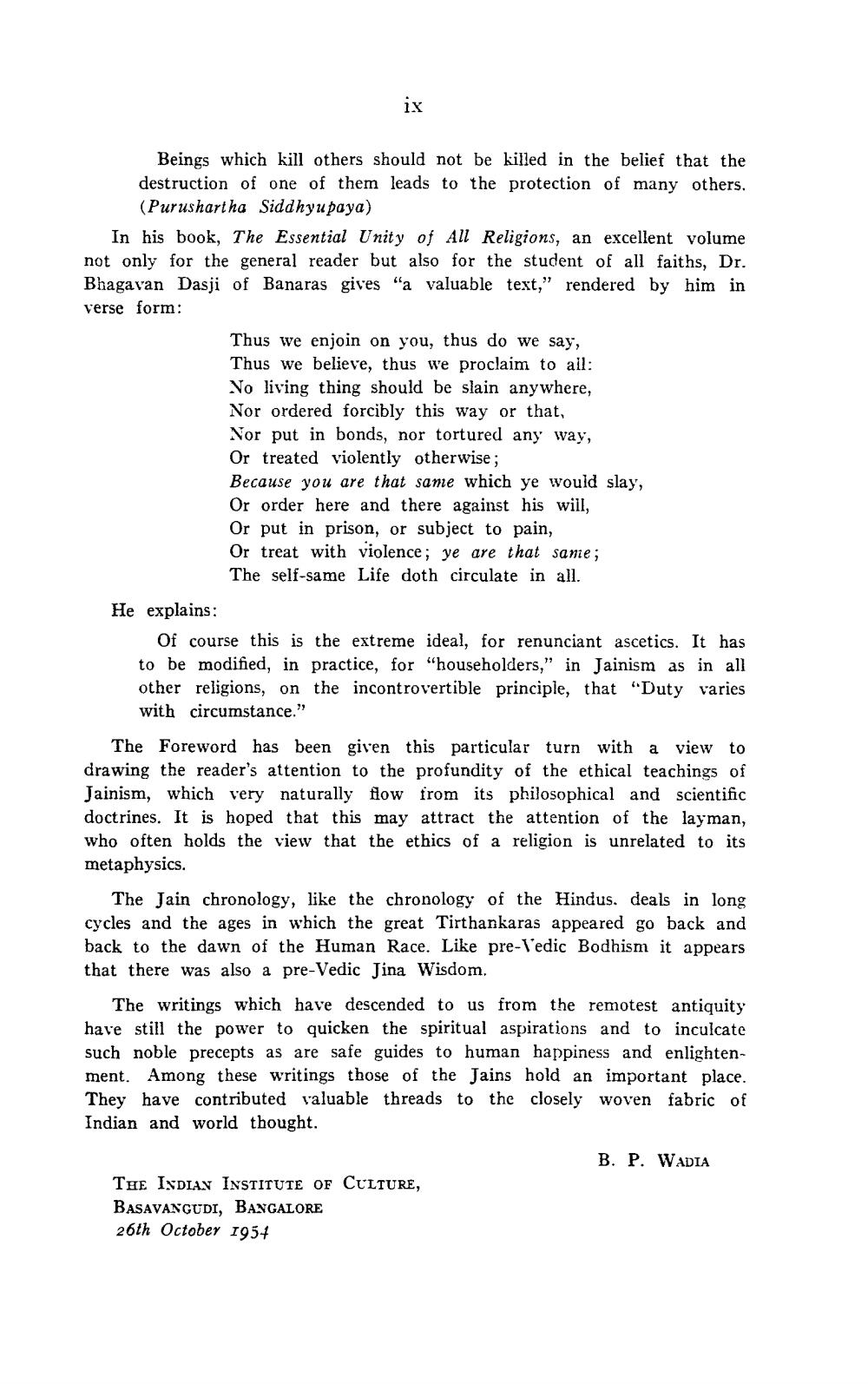________________
Beings which kill others should not be killed in the belief that the destruction of one of them leads to the protection of many others.
(Purushartha Siddhyu paya) In his book, The Essential Unity of All Religions, an excellent volume not only for the general reader but also for the student of all faiths, Dr. Bhagavan Dasji of Banaras gives "a valuable text," rendered by him in verse form:
Thus we enjoin on you, thus do we say, Thus we believe, thus we proclaim to ail: No living thing should be slain anywhere, Nor ordered forcibly this way or that, Nor put in bonds, nor tortured any way, Or treated violently otherwise; Because you are that same which ye would slay, Or order here and there against his will, Or put in prison, or subject to pain, Or treat with violence; ye are that same; The self-same Life doth circulate in all.
He explains:
Of course this is the extreme ideal, for renunciant ascetics. It has to be modified, in practice, for "householders," in Jainism as in all other religions, on the incontrovertible principle, that "Duty varies
with circumstance." The Foreword has been given this particular turn with a view to drawing the reader's attention to the profundity of the ethical teachings of Jainism, which very naturally flow from its philosophical and scientific doctrines. It is hoped that this may attract the attention of the layman, who often holds the view that the ethics of a religion is unrelated to its metaphysics.
The Jain chronology, like the chronology of the Hindus. deals in long cycles and the ages in which the great Tirthankaras appeared go back and back to the dawn of the Human Race. Like pre-V'edic Bodhism it appears that there was also a pre-Vedic Jina Wisdom,
The writings which have descended to us from the remotest antiquity have still the power to quicken the spiritual aspirations and to inculcate such noble precepts as are safe guides to human happiness and enlightenment. Among these writings those of the Jains hold an important place. They have contributed valuable threads to the closely woven fabric of Indian and world thought.
B. P. WADIA
THE INDIAN INSTITUTE OF CULTURE, BASAVANGUDI, BANGALORE 26th October 1954




